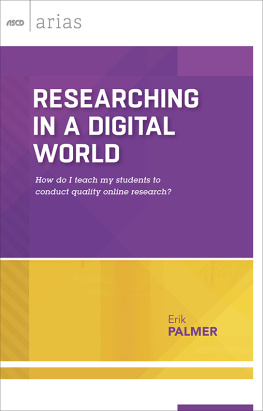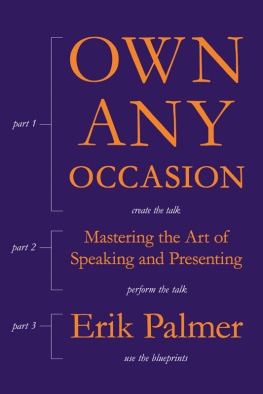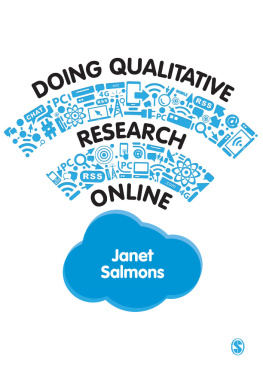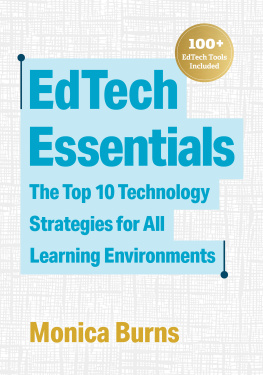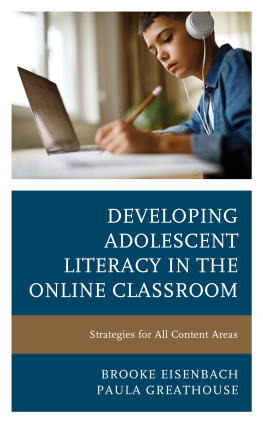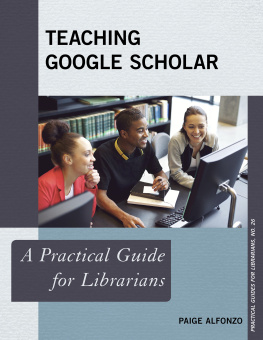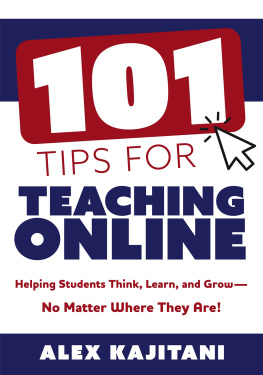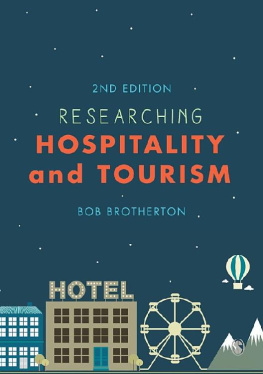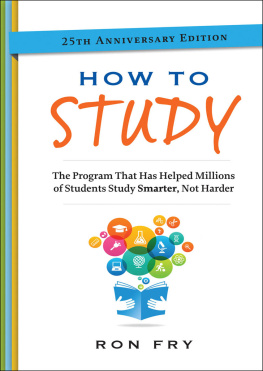


The Need for Internet Literacy
Do you send your students to the Internet to do research? I ask teachers this question when I lead workshops, and overwhelmingly, their answer is yeseven in the primary grades. Then I ask if they teach any specific lessons to prepare students for researching in an online environment. Equally overwhelmingly, their answer is no. Because our students are digital natives, right? Even the youngest of them seems able to intuit how to manipulate all kinds of digital devices, how to create and upload content, and how to find entertaining things online. This leads us to assume they are Internet competent and completely web savvy. But do they really understand how to find the best of places for research and how to analyze all the sites their device dexterity helps them find? The answer is no.
Here is something else Ive learned from my workshops: Teachers absolutely believe that teaching Internet literacy is necessary. Yet it isnt happeningand not because of the time constraints, although that is certainly a factor. The main issue is that many of us dont have a great deal of Internet literacy ourselves. The intricacies and operation of Wikipedia, domain name suffixes, search engines, browsers, how to find who is publishing particular site content, how Google decides what to list first on a search page, how to use punctuation to get better search resultsfor many of us, these remain mysteries.
Student Struggles with Online Research
I happened to be in Oregon recently. As you may know, that part of the country is the home of the endangered Pacific Northwest tree octopus (Octopus paxarbolis), the cephalopod that is born in the ocean but comes ashore to live in the forests along the Oregon coast. I wrote about the animal and the website devoted to it (http://zapatopi.net/treeoctopus/) in my book Teaching the Core Skills of Listening & Speaking (Palmer, 2014). I didnt see any tree octopi on any of my walks, but I didnt expect tounlike many of the students Ive taught, who visited the website and had trouble recognizing it as an elaborate hoax. The trip reminded me of the kinds of struggles students have with online research:
- Uncertainty about what words to put into the browsers search box
- Overrelianceoften exclusive relianceon Google
- Difficulty figuring out which of the 34,219,300 search results returned is the best place to start
- Never looking beyond the first page of results
- Inability to assess the purpose of a site
- Never checking or considering the authority of the sites authors
- Not knowing how to evaluate a sites credibility
- Copying information and images without understanding plagiarism or copyright
These and other issues make clear that we have some work to do to prepare our students before we send them online. Without that preparation, projects that could engage students in independent learning and critical thinking end up wasting learning time, yielding bad information, and creating both bad habits and faulty understanding.
Much of what I will share in this book was learned the hard way. For years, I had my students do a research project I called Planetary Problem Solvinga project easily adaptable to all grade levels and a variety of subject areas. The set-up was simple: Choose a current global problem (e.g., acid rain, overpopulation, world hunger, heart disease), research it, and report out, citing at least three online references. What I didnt do was provide any instruction to build my students Internet literacy. Problems followed.
I have structured this book in a way that I hope is useful. We will proceed through the process of researching online. In each section, I will give some background knowledge to share with students and then use a Planetary Problem Solving examplechildhood obesityto illustrate how this insight might be applied. In the end, I hope you will walk away with a practical approach for preparing your students to conduct truly effective online research.
The Challenge for Teachers
Lets be honest: the Internet was not designed with students in mindand certainly not elementary students. I once watched a 2nd grade teacher hand each student a Chromebook, assign them a country to report about, and direct them to www.safesearchkids.com. After that, she left them to their own devices. Students inputted Brazil or Italy and got flooded with resultsall kinds of sites, both credible and dubious. The kids who werent distracted by ads and pop-ups dutifully copied information into their notebooks, even words and information they didnt understand.
The digital natives in our classroom still need our guidance in the form of information that will help them be savvier and more efficient researchers. They need our support in the form of practical strategies that they can use to think more critically about the facts they find online. Adapt the ideas in this publication for your grade level. Modify its action items as needed. And always be vigilant as your students search, especially if they are very young.

Before Students Go Online
Our students have never known a world without the Internet, but that doesnt mean that they couldnt benefit from a little tutorial about some of the basics of its operation. Lets start there.
Logistics and Key Terms
What is happening when we go online? It is useful for students (and adults) to understand some key terms and logistics.
The Internet is not a place. Nor is it an all-knowing, all-wise source of knowledge. It is a vast network of interconnected computers. Students commonly say, I found it on the Internet, yet the information we find when we research is not on the Internet; its on some computer tied in to that network. This is important knowledge to share with students to begin creating a healthy skepticism. We cant be sure of the validity of the information found on the computers tied into the network. The Internet itself is not a resource; its what allows us to access resources.
Back in the 1990s, when the Internet was taking off, it was common to talk about it as the World Wide Web. The terminology seems quaint now, and your students may not even recognize the www. at the beginning of Internet addresses as its abbreviation. But it really is helpful to think of the Internet as a worldwide weba collection of documents and other resources that have been formatted with Internet protocols that allow them to be accessed. The most common of these protocols is the Hyper Text Transfer Protocol, which gives us the http: in Internet addresses. Your computer is part of the Internet because your router, cable, and wires link you to the network; the files on your personal computer (lesson plans and family photos, among others) are not part of the Internet because they are not formatted in a web-searchable way.
A browser gives you access to the Internet. Web browsers are computer programs that access files linked to the web and display them on your computer. Plug-ins built into the software allow you to see documents, videos, games, and images, and to hear audio from files and other computer users. It is common in schools for students to get a message similar to File cannot be displayed. Plug-in required. This means that the browser does not have the software needed to display the media.
Next page
